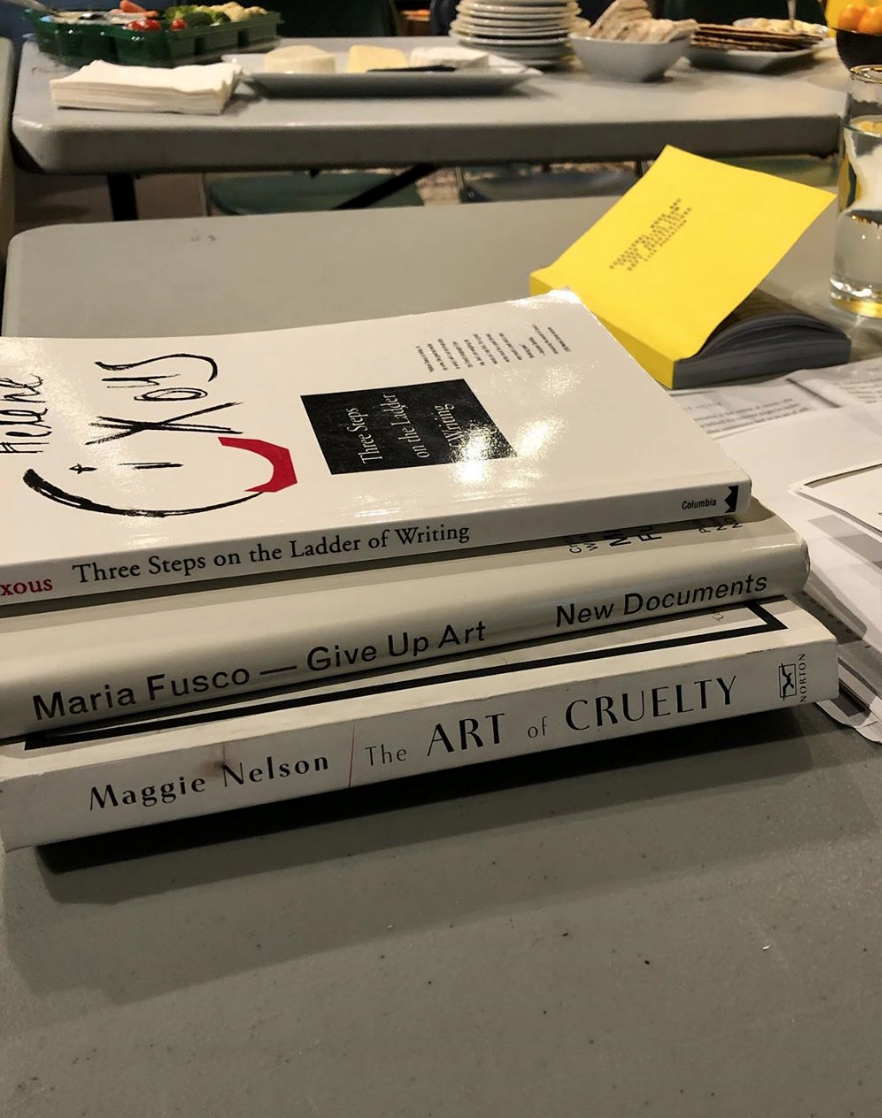Recap | Lauren Lavery Workshop
Thursday, December 5, 2019
Lauren Lavery of Peripheral Review held a workshop on critical art writing on Thursday, December 5, 2019. The workshop was part of Noor Bhangu’s workshop series, Has the Community Been Fed? which invited artists, collectives and filmmakers to structure workshops around ideas of food and community.
Lauren Lavery’s workshop approached four texts by writers Helene Cixous, Maria Fusco, Maggie Nelson and Lisa Robertson to examine the significance of both traditional and experimental modes of critical art writing. These texts differ from each other in both content and approach, with some rooted more heavily in analysis and others leaning toward the poetic. Viewing the act of critical writing through multiple lenses allowed for a deconstruction of the form and an opportunity to reflect on the goals of criticism. Different readers look for different things in art criticism, and heavy use of jargon often only serves to further detach readers from the text at hand. Mainly, readers of art criticism look for something relational in the text, as well as the presence of a distinct opinion.
When writing a critical response to a work, it is important to remember that the language itself exists as a vehicle in which the reader is taken to a greater understanding of complex ideas. An example of this lies in a section of Maggie Nelson’s The Art of Cruelty, in which she examines the works of performance artists Yoko Ono and Marina Abramovic which have dealt with suggestions of violence against women’s bodies. Instead of mapping out distinct results of the performances, Nelson recounts and reflects on her own experience with the works, subtly raising questions about the nature of performance and the strange impairment of morality that arises when groups of people become witness to public violence and spectacle. Often within criticism no direct conclusion is drawn, but the writer’s understanding of the work is conveyed in their relation of it to their own experience, or towards larger issues in life.
During the workshop, a point was made about the value of discussion between writer and artist, so as to promote an atmosphere of care when undertaking the task of critical review. The task of restructuring the relationship between artist and critic is one that involves a fundamental change in the way that criticism is performed. In thinking of the critique as a re-animative process rather than one of dissection, healthier relationships between artist and critic arise and the power of the artwork has a chance to be amplified.
The final segment of the workshop was a synthesis of the ideas that had been previously explored, as participants attempted to interpret works from artists Rachel Harrison and Glenna and seth cardinal dodginghorse. In both exercises, participants were able to glean most of the intended meaning behind the works before much information was given, exemplifying the fact that the ability to interpret art is within everyone, so long as we are given the resources to approach it. And while it is true that genuine, ethical art criticism comes from a well-informed and researched place, there is still something to be said about first impressions.


